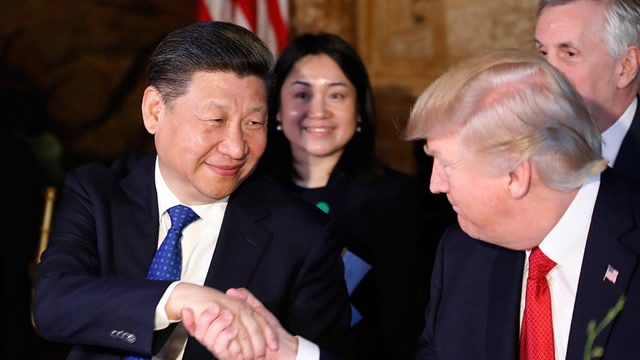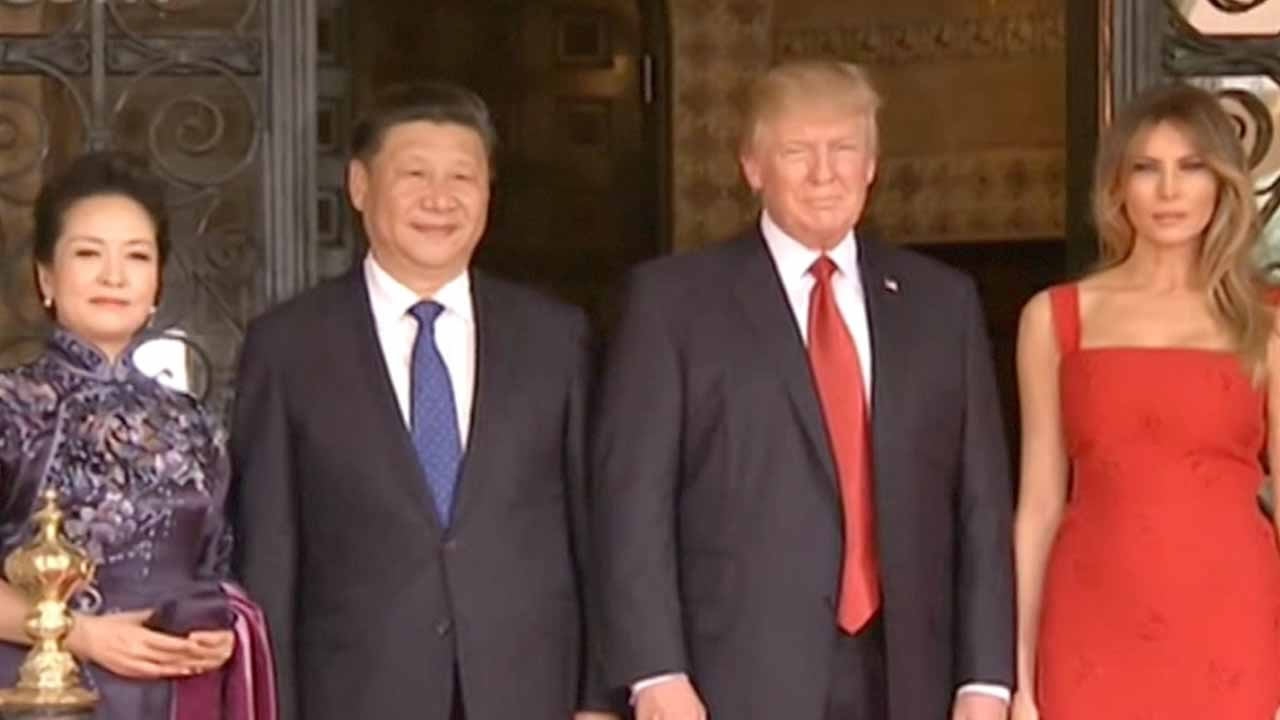A rising power will inevitably confront a ruling power – this is what Western realist philosophy calls the Thucydides Trap. Can China and the United States avoid this trap?
Over the past five years, Chinese President Xi Jinping has paid 28 state visits covering five continents. What is the goal of his diplomacy? In his view, what is the direction of international relations?
These questions have been answered in the second episode of a newly released CGTN documentary series "Major-Country Diplomacy."
'Good friend' and 'reliable partner'
Xi presented a new concept of international relations during a state visit to Russia in March 2013. Based on win-win cooperation, the concept set out the future direction for China's diplomatic ties with Russia and other countries.
"President Xi Jinping recognizes the importance of developing Russia-China relations," Russian President Vladimir Putin said. "He's a very good friend, a very reliable partner."
The leaders of China and Russia have met on more than 20 occasions during the past five years, making bilateral relationship the best it has ever been in history.
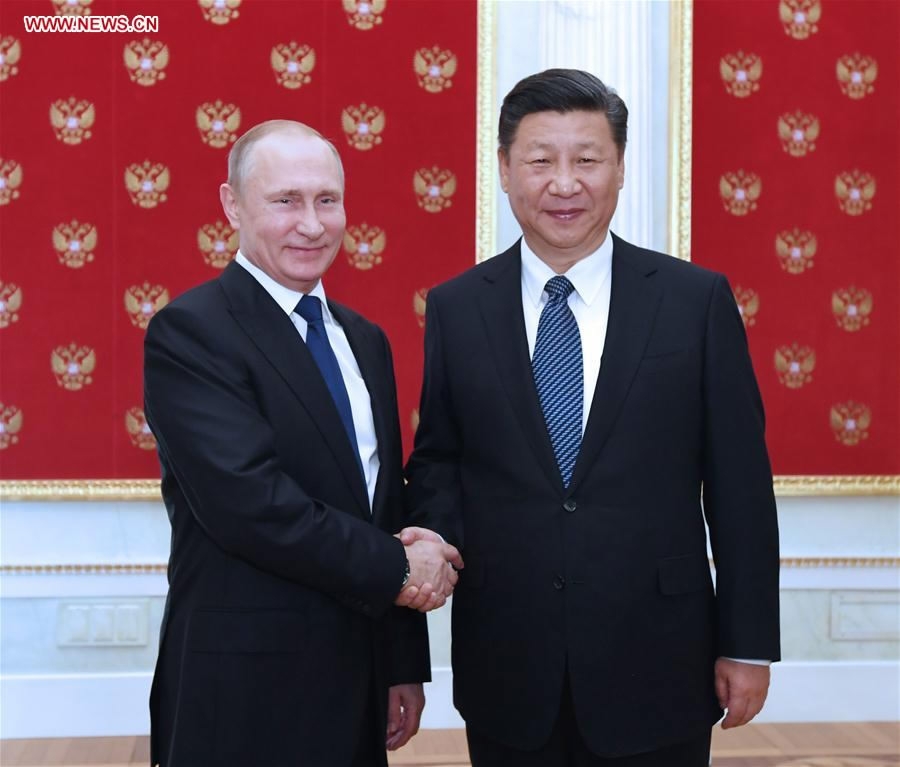
Chinese President Xi Jinping (R) meets with his Russian counterpart Vladimir Putin at the Kremlin in Moscow, Russia, July 3, 2017. /Xinhua Photo
Chinese President Xi Jinping (R) meets with his Russian counterpart Vladimir Putin at the Kremlin in Moscow, Russia, July 3, 2017. /Xinhua Photo
When rising power meets ruling power
On a state visit to the US in September 2015, the Chinese president explained how the two countries – the world's largest developing country and largest developed country – could get along with each other and avoid the Thucydides Trap.
"We want to deepen mutual understanding with the US on each other's strategic orientation and development path. We want to see more understanding and trust, less estrangement and suspicion, in order to forestall misunderstanding and miscalculation," Xi said in Washington.
The first face-to-face summit between Xi and US President Donald Trump took place at the Mar-a-Lago Resort in Florida in April, drawing worldwide attention. The two leaders held in-depth and constructive discussions that lasted over seven hours.
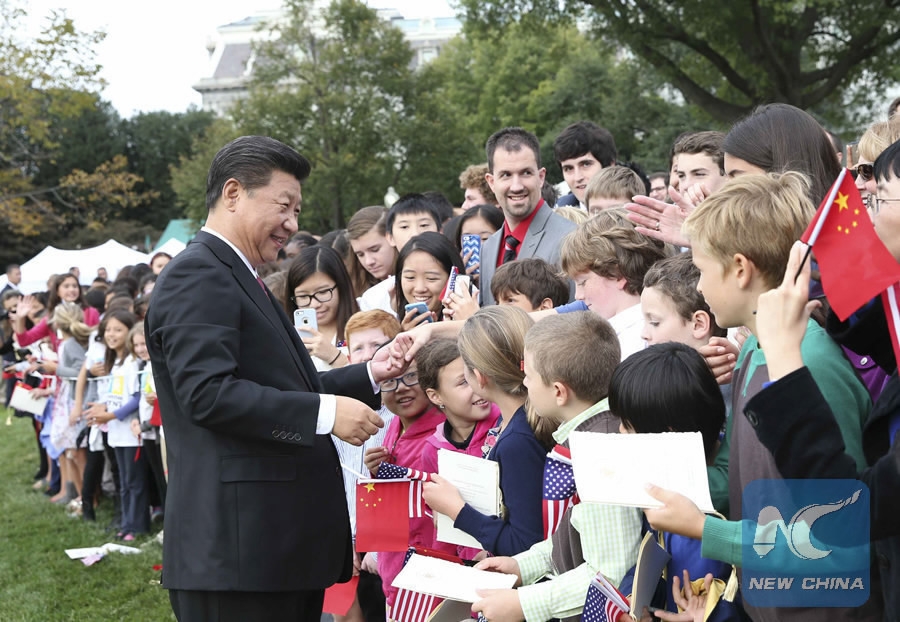
Chinese President Xi Jinping (front L) is greeted by people during a welcome ceremony held by then US President Barack Obama at the South Lawn of the White House in Washington, US, September 25, 2015. /Xinhua Photo
Chinese President Xi Jinping (front L) is greeted by people during a welcome ceremony held by then US President Barack Obama at the South Lawn of the White House in Washington, US, September 25, 2015. /Xinhua Photo
The episode stresses that Sino-US cooperation will benefit not only the people of the two countries, but also those of the Asia-Pacific region and the world.
Expanding global partnership network
In the meantime, Xi has visited many of China's neighbors and African countries, expanding its global partnership in a comprehensive way.
"Traveling alone, a person can go fast; traveling with others, a person can go far," the episode states, indicating that the goal of Xi's diplomacy is to ensure China remains strategically active across the globe in the face of the complex international challenges.
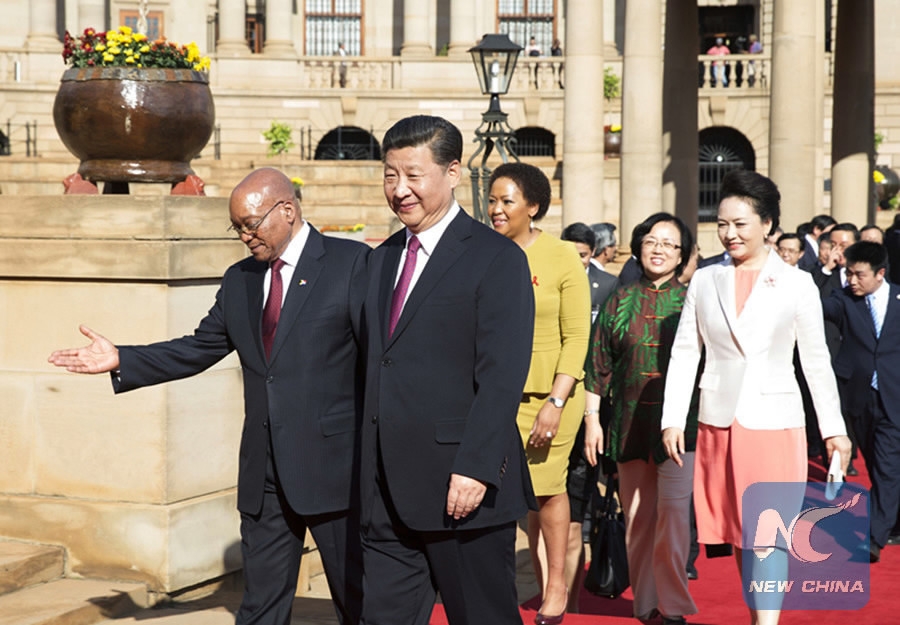
Chinese President Xi Jinping (L2) attends a welcome ceremony held by his South African counterpart Jacob Zuma (L1) at the Union Buildings before their talks in Pretoria, South Africa, December 2, 2015. /Xinhua Photo
Chinese President Xi Jinping (L2) attends a welcome ceremony held by his South African counterpart Jacob Zuma (L1) at the Union Buildings before their talks in Pretoria, South Africa, December 2, 2015. /Xinhua Photo
By playing an active role in building a new type of international relations based on win-win cooperation, China has provided its answer to the key question of our times – What is the direction of international relations in the 21st century?
The major-country diplomacy with Chinese characteristics champions peace, development, cooperation and mutual benefit, according to the episode.

